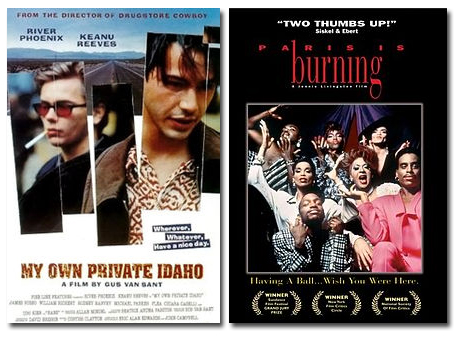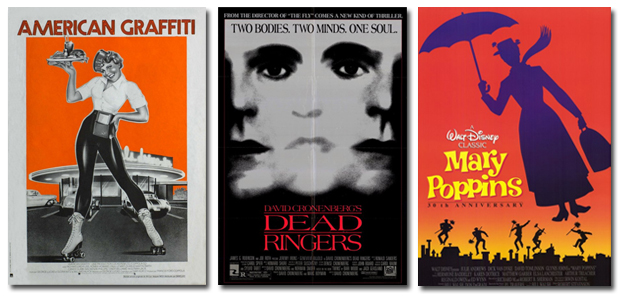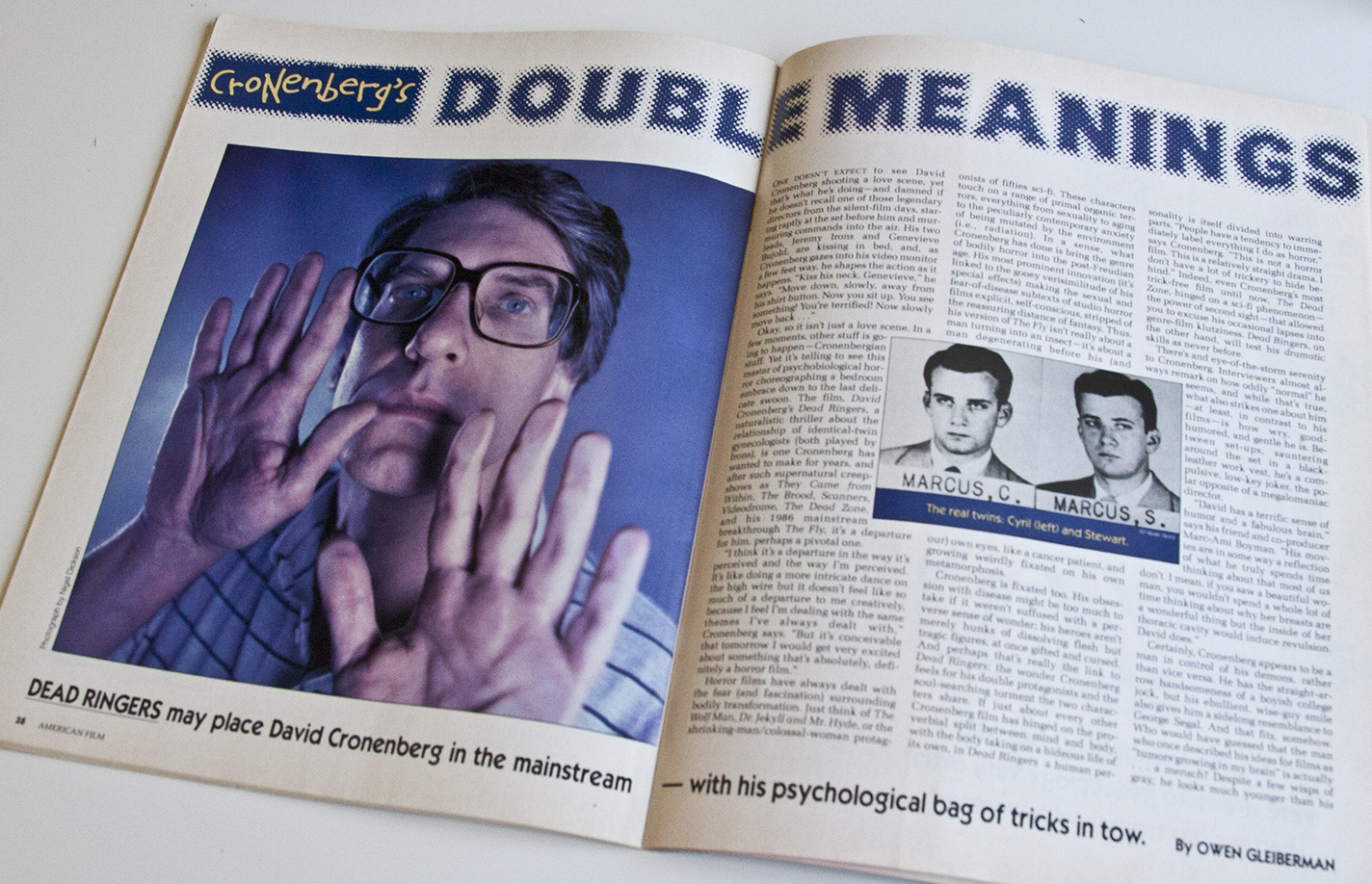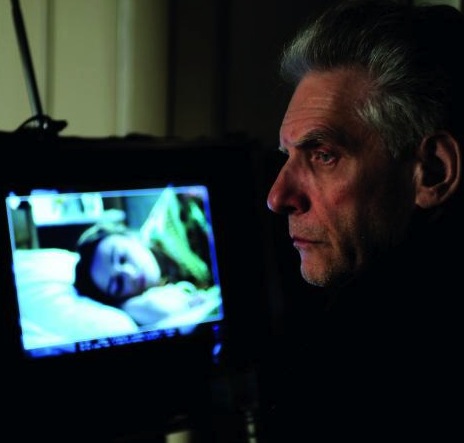 Cronenberg hard at work on "A Dangerous Method"I met the great filmmaker David Cronenberg one morning this fall shortly before a screening of his latest work at the New York Film Festival. His new film A Dangerous Method, which just opened and will be expanding throughout the month in theaters, is a historical drama about the birth of psychoanalysis. In the film Sigmund Freud (Viggo Mortensen) and his protege Carl Jung (Michael Fassbender) are torn apart over idealogical differences and Jung's treatment of a young woman named Sabina (Keira Knightley).
Cronenberg hard at work on "A Dangerous Method"I met the great filmmaker David Cronenberg one morning this fall shortly before a screening of his latest work at the New York Film Festival. His new film A Dangerous Method, which just opened and will be expanding throughout the month in theaters, is a historical drama about the birth of psychoanalysis. In the film Sigmund Freud (Viggo Mortensen) and his protege Carl Jung (Michael Fassbender) are torn apart over idealogical differences and Jung's treatment of a young woman named Sabina (Keira Knightley).
Cronenberg in person was talkative, articulate and fascinating. He was even good natured about the sordid topic of Oscar (incredibly the reknowned auteur has never been nominated for an Oscar, a Golden Globe or even a DGA prize!).
His ease with conversation might surprise people who only know him through his often unsettling films. The night before our interview I'd been at a party and when I casually mentioned I'd be interviewing Cronenberg the next day I heard the strangest funniest responses: "Don't get in a car with him!" "Don't let him touch your portals!" and so on. Other amusing warnings followed as if he were a frightening character from his movies.
I relayed this to Cronenberg as icebreaker when we sat down...
Nathaniel: Do you find that people regularly have odd conceptions about you based on your films?
DAVID CRONENBERG: Well, you know, I haven't done horror films for a long time so it's strange that it's sticky. I've talked about this before but Marty Scorsese told me he was terrified to meet me -- we did meet and became very good friends many years ago -- but he said he was terrified and then shocked to see that I looked like a Beverly Hills gynecologist. And I said 'You were afraid to meet me? You're the guy who made Taxi Driver?!'
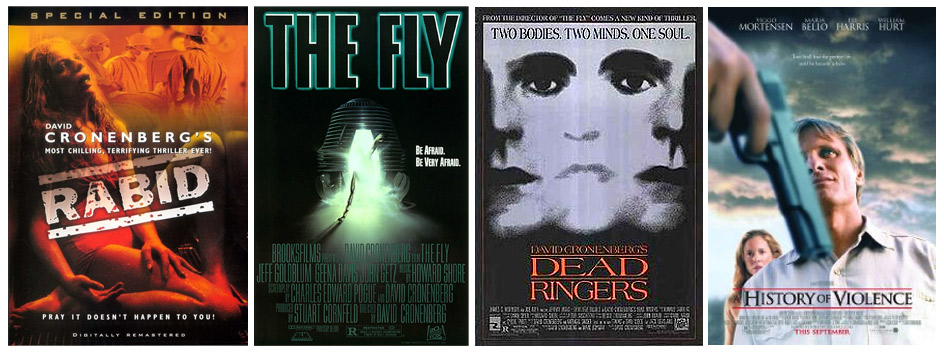 a small sampling of his often deeply troubling films
a small sampling of his often deeply troubling films
It was a long time ago. But he had seen Shivers and Rabid and maybe The Brood and he found them incredibly overwhelming and terrifying. He of all people should know and I suppose if Marty could make the same mistake...
The relationship of an artist to his art is a complex one. It's not one to one. It's not like you make romantic comedies therefore you are romantic and fun. On the contrary we know that most comedians are really nastily, hostile, spiteful vindictive people.
Nathaniel: Does your work ever scare you then, when you see it back?
CRONENBERG: I don't normally watch it. I can't watch my movies as though they're movies. They're documentaries of what I was doing that day. I'm the last person to be able to tell you objectively what my movies do or don't do.
Nathaniel: As an auteur you obviously have had recurring thematic elements Do you think about your past work when you're working on something new?
CRONENBERG: No. I completely don't. That's why if someone should say, it has happened, that A Dangerous Method doesn't feel like a Cronenberg film. I don't know what they're talking about. I mean, I know what the cliches are. But to me, they don't realize that the first movie I made was about a psychiatrist and his patient. It was a short, my first film. So for me this is business as usual. To me that just reveals their ignorance. I'm not saying that in a vindictive way but it just means they don't really know my work or understand it. That's the way I feel.
Nathaniel: It's actually very much like your work in terms of the concerns. You've done a lot of films that had psycho-analytic elements. Did you ever worry that this was maybe too on the nose, given that? Like you're going back to the womb or the source of it all.
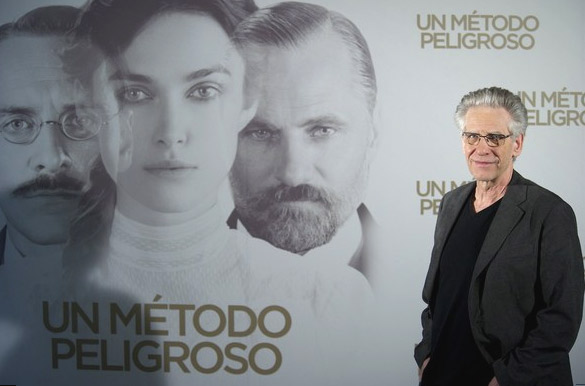
CRONENBERG: No, No. It's exciting to do that!
[MORE AFTER THE JUMP: including his collaboration with Viggo, awards season lottery tickets, and the modern trend of directors tinkering with their old movies.]
Click to read more ...
 Thursday, June 27, 2013 at 10:00PM
Thursday, June 27, 2013 at 10:00PM  Tim here. Just in time for Gay Pride Month, sometime Film Experience contributor and generally terrific film writer Nick Davis had his very first book published, The Desiring-Image: Gilles Deleuze and Contemporary Queer Cinema. After having torn through my copy a little bit faster than the densely academic arguments necessarily deserved, I sat down with Nick to chat about some aspects of the book.
Tim here. Just in time for Gay Pride Month, sometime Film Experience contributor and generally terrific film writer Nick Davis had his very first book published, The Desiring-Image: Gilles Deleuze and Contemporary Queer Cinema. After having torn through my copy a little bit faster than the densely academic arguments necessarily deserved, I sat down with Nick to chat about some aspects of the book.